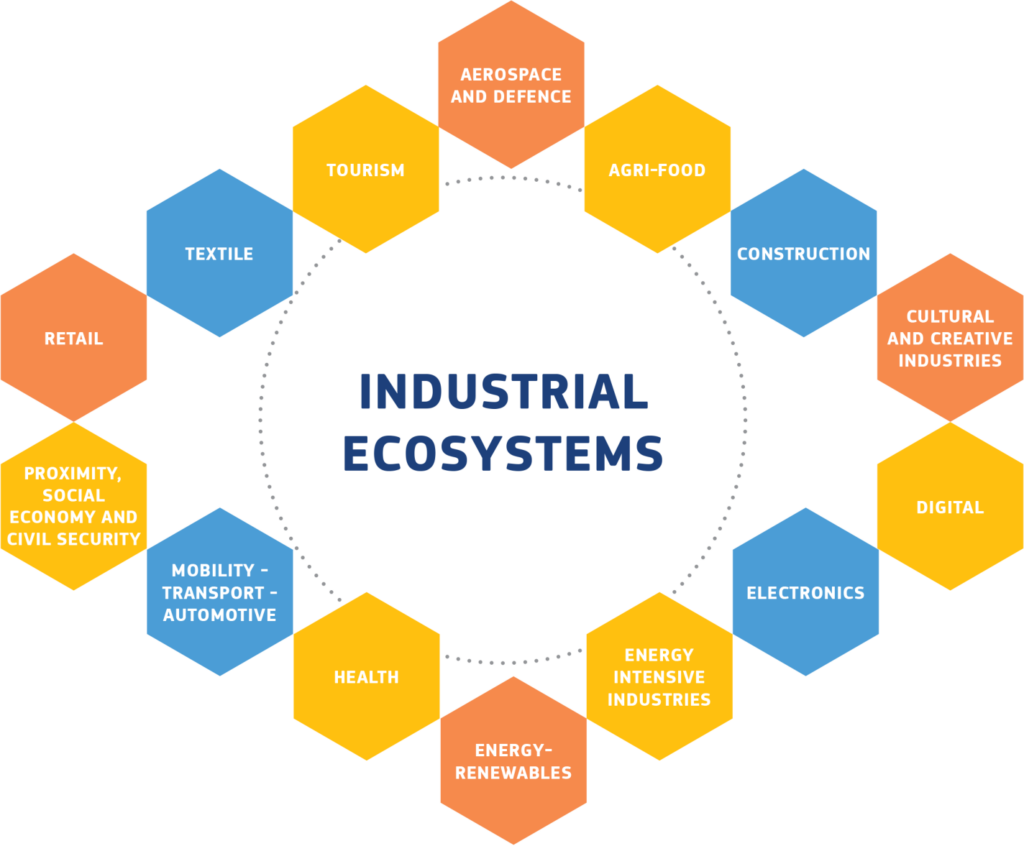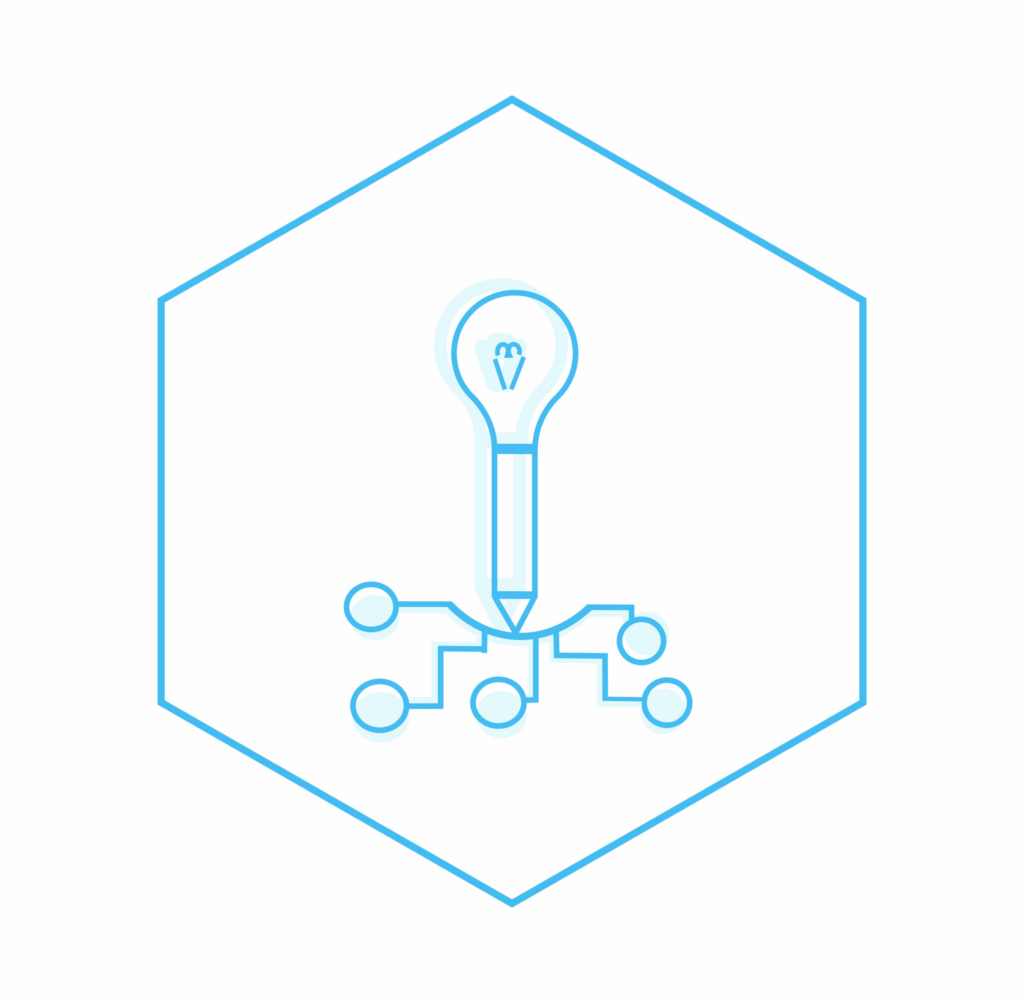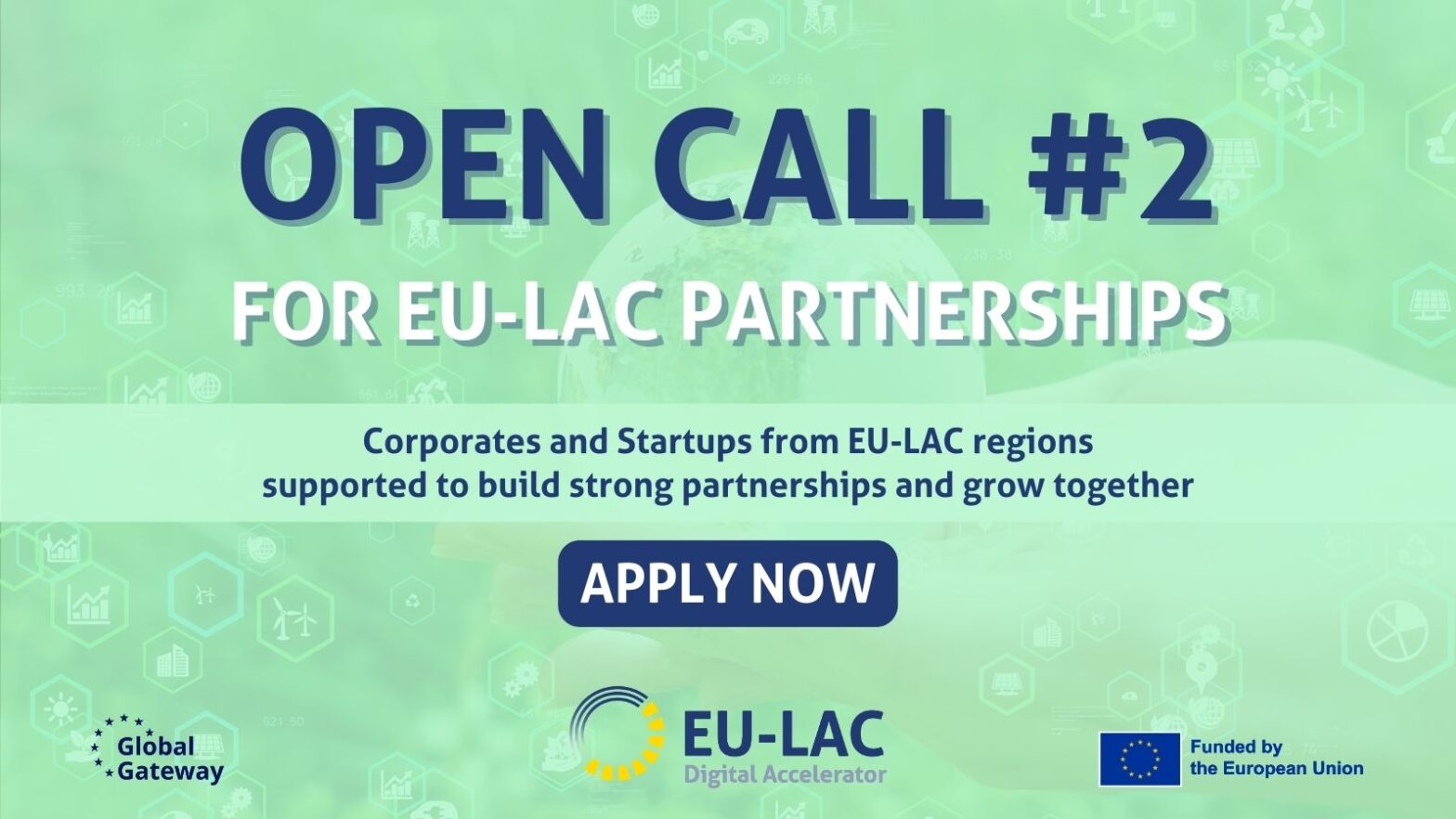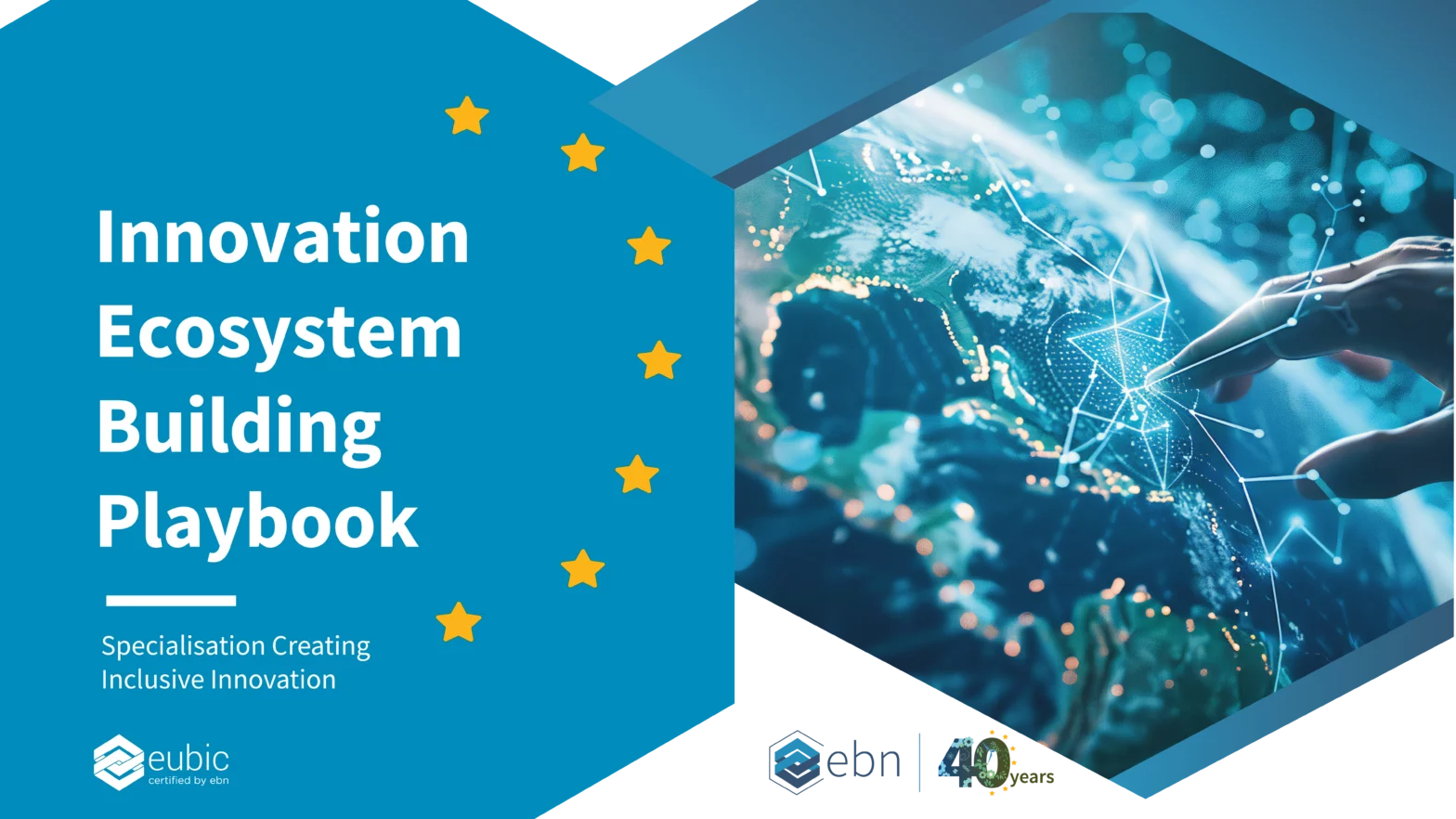EBN renews Special Interest Groups (SIGs)

The need for an update – SIGs take a turn to EU industry focus for greater collaboration
The introduction of the ‘New Industrial Strategy for Europe’, set out how Europe’s industries can lead the twin green and digital transitions, drawing on the strength of its traditions, its businesses, and its people to enhance its competitiveness. The new Strategies focus on better connecting the needs and support provided to all players within each value chain or industrial ecosystem.
Staying true to our mission, the EBN Secretariat and the 160+ EU|BIC community members contribute to the implementation of the new EU strategies, to achieve digitalisation and net-zero goals in all European regions. The updated SIG names and structures, which are presented below, leverage the new policy approach to drive more opportunities for EU|BIC community members.
By taking Europe’s key value chains as a starting point, we believe that the updated SIG structure better facilitates the sharing of funding opportunities, knowledge exchange, and collaboration on sectorial and cross-cutting thematic topics. To further increase interaction among our 650+ experts in the EU|BIC community, the renewed SIGs also combine industry value chains that are closely related, interdependent or contributing to each other’s growth and invite greater collaboration of members.
Ultimately we seek to tap into the innovation potential of startups, SMEs and industries embedded in the regions where EU|BIC community members operate – and beyond.
We welcome experts and staff working for all members of the EU|BIC community to join the following facilitated SIGs:
How to join a SIG
Visit the dedicated webpage for the EBN Special Interest Groups and directly contact the SIG lead, or send an email to info@ebn.eu. We look forward to introducing you to the experts active in the various subcommunities.
More information
Industry and SMEs are the backbone of the European economy. Europe’s global competitive advantage in high-value-added products and services translates to more than 20% of the EU’s total value-added, with industry directly providing 35 million jobs. Competitiveness is therefore at the heart of the Commission’s agenda and, as the EU stands on the brink of a new industrial revolution, we are committed to supporting the digital and green transformation of EU industry.

EU New Industrial Strategy
The comprehensive long-term industrial policy strategy recognises key value chains and provides a vision for the digital and green twin transition – with a prominent place carved out for the innovation potential powered by Europe’s startups and SMEs.
What the European Commission does
Industrial strategy
The European Commission is taking action to maintain European industry’s global competitiveness, reach climate neutrality by 2050, and make Europe fit for the digital age. Among various actions that help the industry take advantage of the twin green and digital transformations, the Commission is
- supporting the transformation of EU energy-intensive industries to enable a climate-neutral, circular economy by 2050
- empowering citizens by providing skills for industry
- promoting advanced technologies
- supporting innovation through policies and programmes
- taking action on intellectual property so companies can better manage and benefit from their non-tangible assets
- developing clusters and pooling European, national and regional resources to aid the revitalisation of regions
- providing platforms for discussion and dialogue, such as the annual EU Industry Days.
Industrial alliances
Industrial alliances bring together a wide range of partners in a given industry or value chain, including public and private actors, and civil society. They can play a role in achieving key EU policy objectives through joint action by all the interested partners. Alliances have already delivered benefits in the area of batteries and circular plastics. Building on this success, the Commission launched the European Clean Hydrogen Alliance and the European Raw Materials Alliance in 2020.
Sustainability and circular economy
For coherence between industrial, environmental, climate and energy policy, we should optimise the business environment for sustainable growth, innovation and job creation. Our ambitious agenda aims to make the EU economy circular, so products and materials can maintain their value for as long as possible, yielding major economic benefits. The Commission also supports European industry in the move to a climate-neutral economy and is improving the energy efficiency of products through ecodesign legislation.
Digital transformation
Digital technology is changing people’s lives. The EU’s digital strategy aims to make this transformation work for people and businesses as well as adding to its target of a climate-neutral Europe by 2050. We work to establish an environment where businesses are encouraged to Digital Transformation adopt and develop digital technologies, while earning citizens trust. To do this, the Commission launched the European chips survey to support the semiconductor industry, and the Get Digital initiative to scale digital solutions in the EU, Ukraine, Moldova and Georgia.
International activities
We help the internationalisation of EU businesses by ensuring them a level playing field through bilateral, regional and international dialogues. We also contribute to the process of EU enlargement.
What the European Commission does for SMEs
SME Strategy
At the centre of the Commission’s action is the new SME Strategy for a sustainable and digital Europe. It aims to considerably increase the number of SMEs engaging in sustainable business practices as well as the number of SMEs employing digital technologies. Ultimately, the goal is that Europe becomes the most attractive place to start a small business, make it grow and scale-up in the single market and beyond. More on SME Strategy.
Reduces regulatory burden and improves market access
The SME strategy proposes actions to remove regulatory and practical obstacles to doing business or scaling up within the Single Market and beyond. More on reducing regulatory burden.
The Commission’s priority is also to ensure that enterprises make the most out of cross-border activities, both within the EU Single Market and outside the EU. More on SME internationalisation.
Improves access to financing
Access to finance is one of the most pressing issues for many small enterprises. The Commission works on improving the financing environment for SMEs and provides information on funding. More on access to finance.
An EU-country partnership for delivery
To deliver results, the new SME Strategy will be underpinned by a robust partnership between the EU and EU countries, including regional and local authorities. The EU SME envoy will work together with national envoys to ensure and monitor the implementation of the strategy and the application of the ‘think small first’ principles in all EU policies. More on EU SME envoys and creating an EU country partnership for delivery.
Supports Entrepreneurship
Entrepreneurship means acting upon opportunities and ideas and transforming them into value for others, which can be financial, cultural, or social. More on entrepreneurship support.
Provides key support, networks and information for SMEs
- The Your Europe Business Portal is a practical guide to doing business in Europe. It provides entrepreneurs with information and interactive services that help them expand their business abroad.
- The Enterprise Europe Network helps SMEs and entrepreneurs access market information, overcome legal obstacles, and find potential business partners across Europe.
- The SME Internationalisation support page provides information on foreign markets and helps European business internationalise their activities.
- The single portal on Access to Finance helps SMEs find finance supported by the EU.
- The European Cluster Collaboration Platform offers dynamic mapping of over 1000 profiled cluster organisations worldwide or supports the emergence of new value chains through cross-sectorial cooperation.
- Erasmus for Young Entrepreneurs is a cross-border exchange programme that gives new or aspiring entrepreneurs the chance to learn from experienced entrepreneurs running small businesses in other participating countries.
- COSME, the EU Programme for the Competitiveness of Enterprises and SMEs, supports SMEs in accessing finance, and markets and creates a business-friendly environment.
- The SME Assembly, the most significant event for SMEs in Europe, presents different approaches to promoting SME entrepreneurship.












